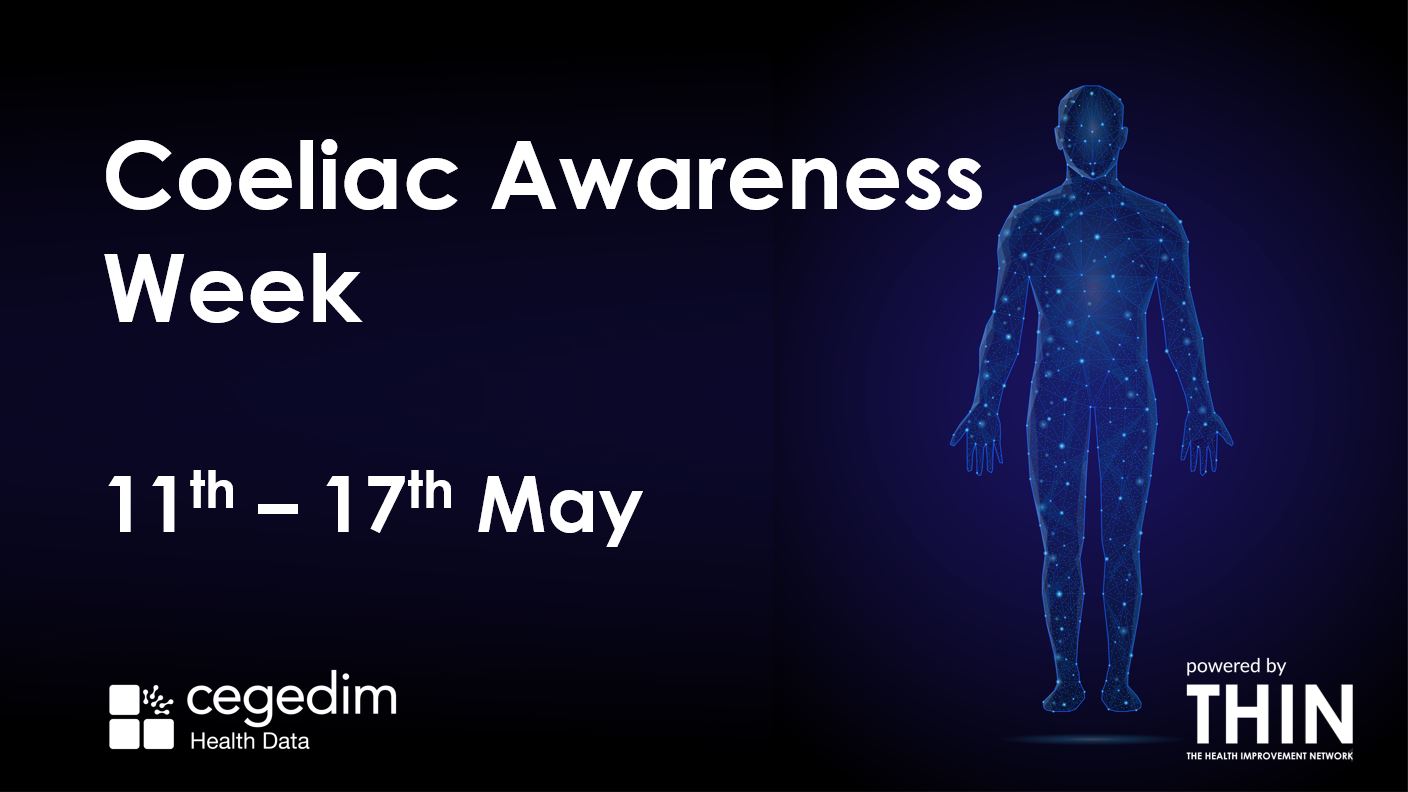MS Awareness Day
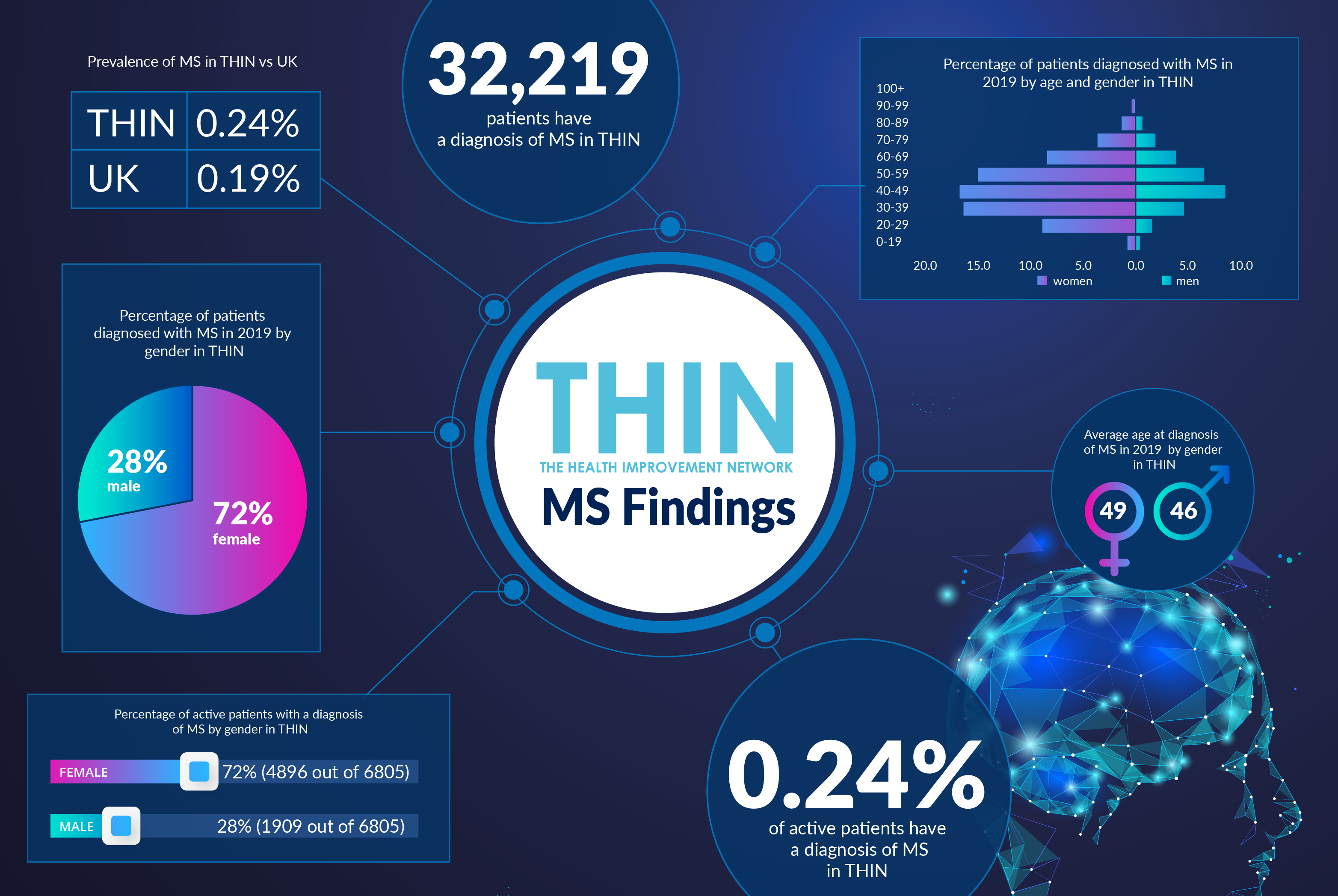
The implications for mental health of isolation and loneliness have become very apparent over the last few months, but it is a constant issue for those whose lives are continually restricted through illness, such as Multiple Sclerosis (MS). This year’s World MS Day on May 30th is challenging the social barriers that leave people affected by MS feeling lonely and isolated.
This is a pressing concern for large numbers of individuals. Recent research from the UK MS Society using The Health Improvement Network (THIN®) a Cegedim Database, and IQVIA, suggests 130,000 people are living with MS in the UK, 20% more than previous estimates. There are several reasons for this rise – improving diagnosis, better medical data and the fact that people are living longer with MS. This suggests around one in every 500 people in the UK is living with MS.
Understanding MS
MS is a condition that affects the brain and spinal cord. Caused by damage to the myelin that protects nerves, sufferers endure a number of symptoms, including blurred vision, mobility, pins and needle, fatigue and pain. Once diagnosed, MS is not reversable but treatments and specialists can help with the management of the condition and its symptoms.
The causes of MS are still not known. It is an auto-immune condition thought to be triggered by a number of risk factors, such as a viral infection, smoking or a lack of vitamin D, in people who have an underlying genetic tendency.
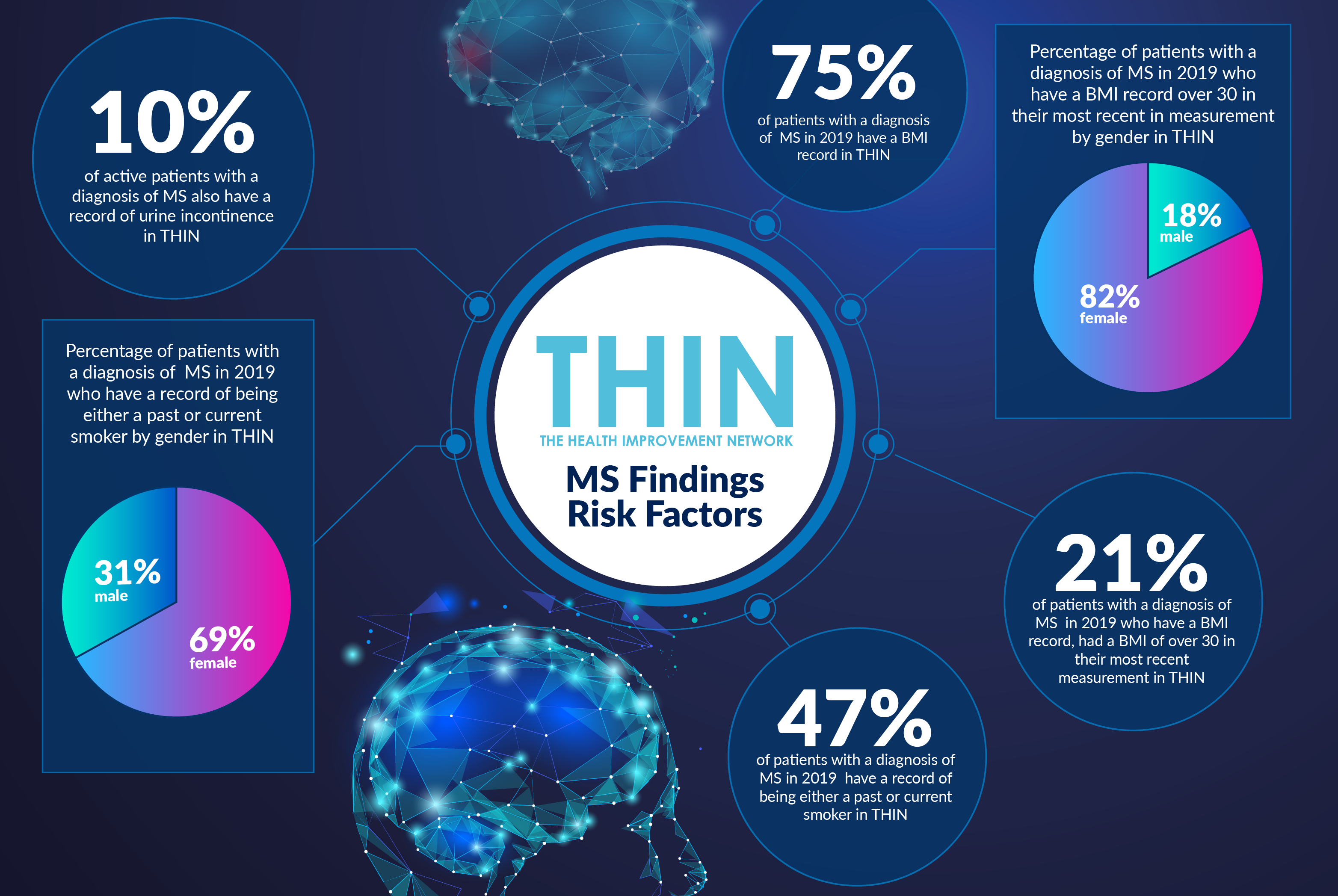
Smoking certainly appears to raise the risk, with research from Public Health England using the THIN® database revealing that smoking rates among males with MS are likely to be higher than those in the general population; while males and females with MS are more likely to be ex-smokers than males and females in the general population.
THIN® analysis confirms that almost half (47%) of patients with a diagnosis of MS in 2019 have a record of being either a past or current smoker. In addition, 75% of patients with a diagnosis of MS in 2019 have a BMI record in THIN®; of these 21% had a BMI of over 30 (defined as obese) in their most recent in measurement in THIN®.
Living with MS
With a data record of over 3,000 patients with a diagnosis of MS, analysis of THIN® can reveal the day to day implications of living with the condition – not least the implications for isolation and loneliness. MS affects significantly more women than men – almost three quarters (72%) of active patients with a diagnosis of MS by gender in THIN® are female. The average age of diagnosis is 46 for men, 49 for women, but according to the MS Society many people experience symptoms for several years before receiving a diagnosis.
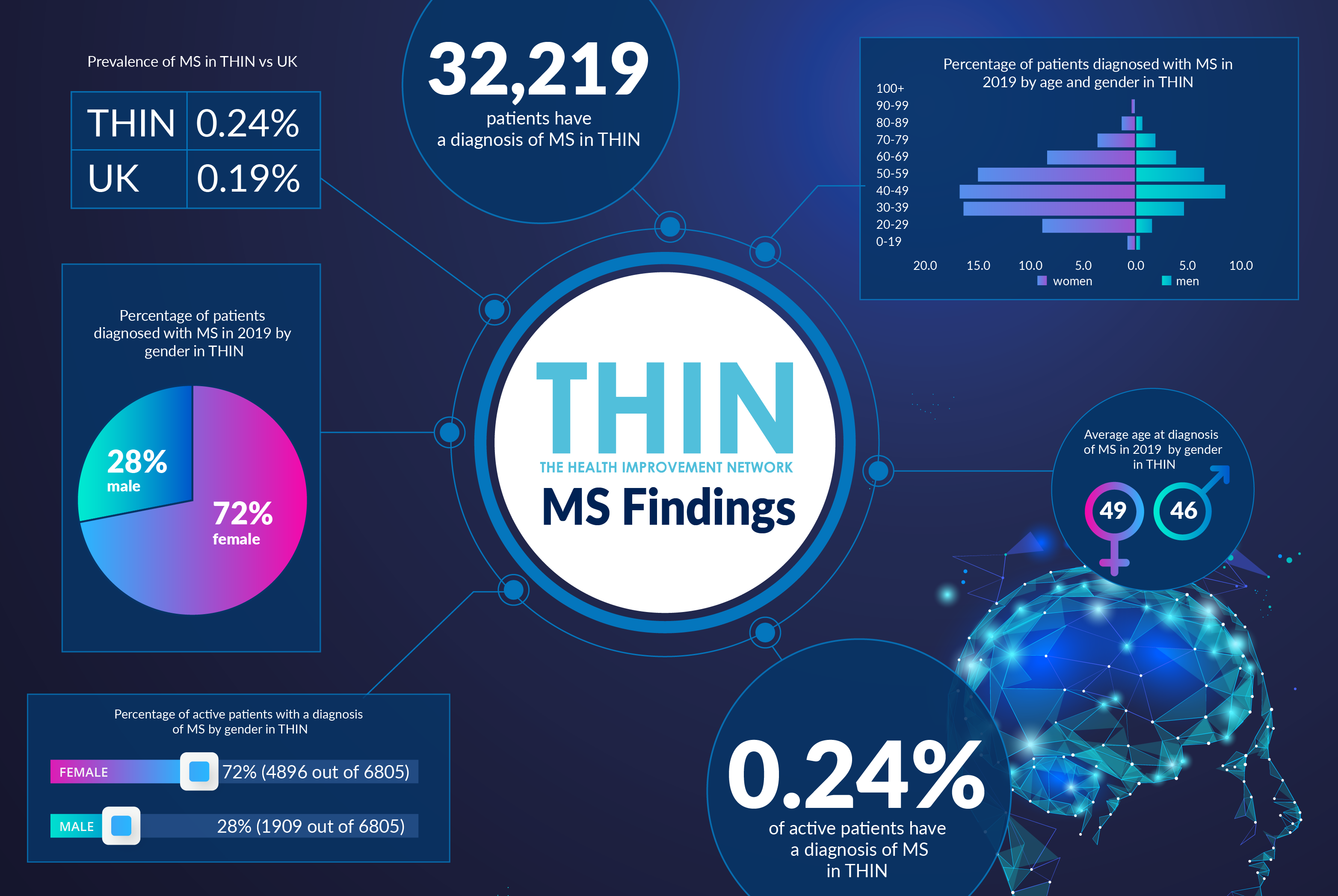
The condition can be severely limiting - one tenth (10%) of active patients with a diagnosis of MS also have a record of urine incontinence in THIN; while 31% of active patients with a diagnosis of MS also have a diagnosis of depression/anxiety in THIN® – 77% of these patients are female. It is also interesting to note that 82% of those patients with a BMI of over 30 (defined as obese) in their most recent in measurement in THIN® are female.
Additional factors to consider are the prevalence of hypertension amongst people with MS. While the prevalence of hypertension in the UK is 14%, 19% of active patients with a diagnosis of MS also have a diagnosis of hypertension in THIN®. Over one fifth (21%) of these are male, suggesting hypertension is more of an issue for men with MS than women.
Epilepsy is also more common in those with MS. While the prevalence of epilepsy in the UK is 0.6%; 3% of active patients with a diagnosis of MS also have a diagnosis of epilepsy in THIN®.
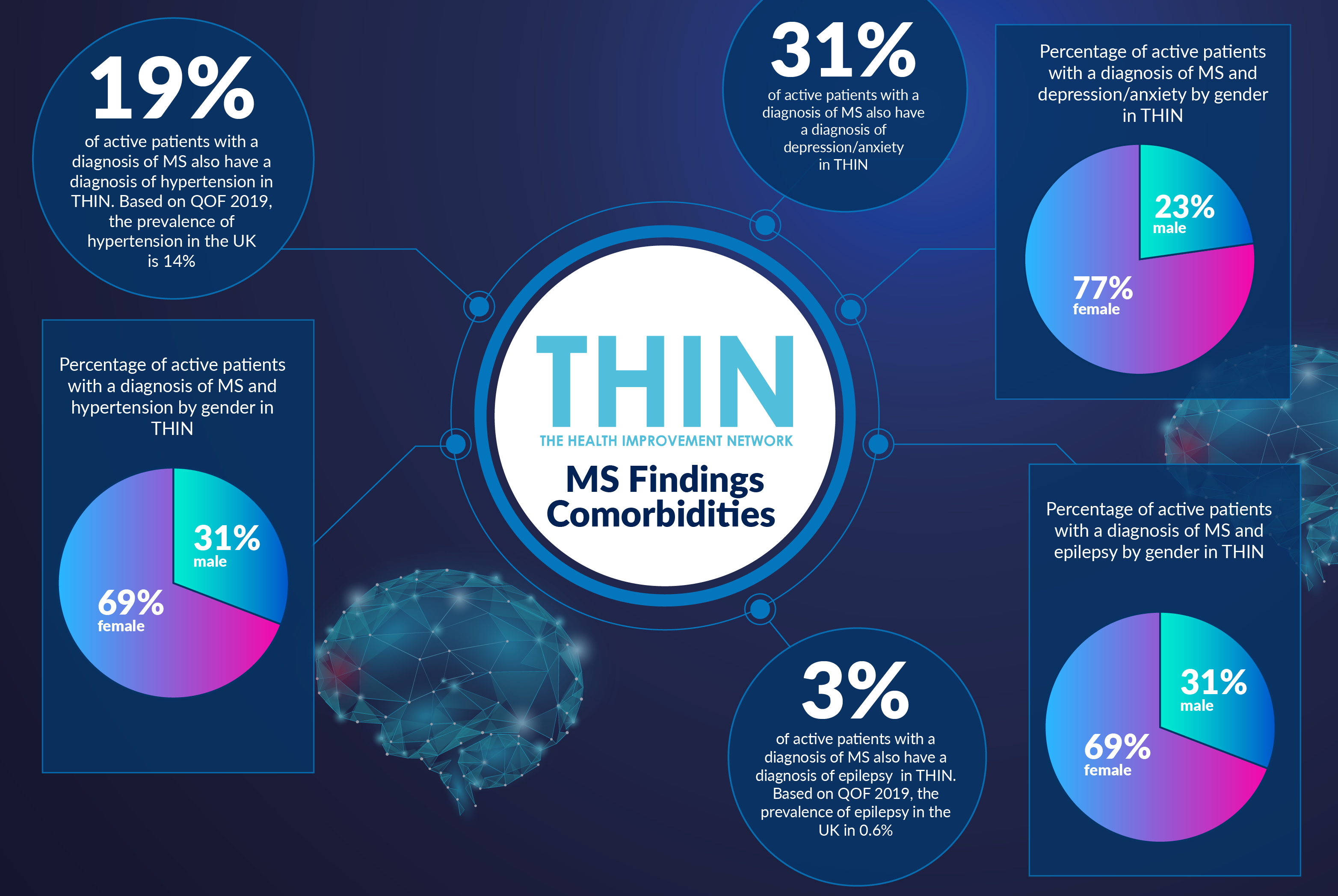
Maximising Global Medical Data Insights
The use of medical data to improve the understanding of day to day life for individuals with MS is supporting the UK MS Society’s call to better support people living with MS. Medical data is also playing a vital role in improving global understanding of the impact of COVID-19 on those with MS. With many disease modifying therapies (DMTs) for MS working by suppressing or modifying the immune system, there are concerns that some MS medications might increase the likelihood of developing complications from a COVID-19 infection – a risk that needs to be balanced with the risks of stopping treatment.
MS Data Alliance and the MS International Federation with its members, are spearheading a global data sharing initiative. In the short term, data will be used to better understand the immediate implications of COVID-19 on people with MS; while in the longer term, sharing data could help answer questions about the interaction between MS, disease modifying therapies for MS and treatments or a vaccine for COVID-19.
About THIN®
THIN® is an unobtrusive medical data collection scheme that contains anonymised longitudinal patient records for approximately 6% of the UK population. It is the key driving force behind enabling advancements in patient care and outcomes, with one of the most respected and reliable data sources for anonymised primary care records.



